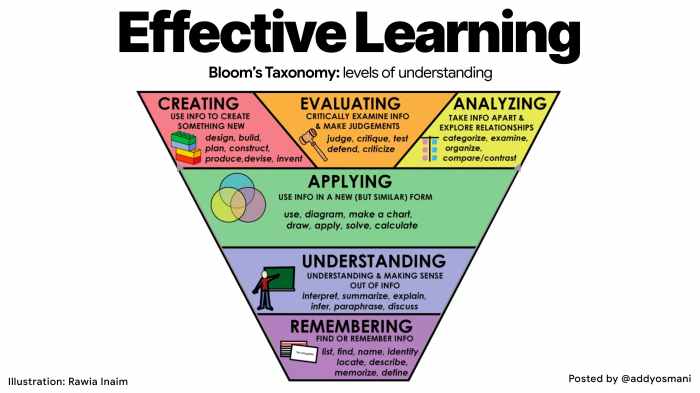8 ways procrastination can destroy your life. From academic setbacks to strained relationships, procrastination’s insidious effects can ripple through every aspect of your life. This exploration dives deep into the damaging consequences of putting things off, revealing how seemingly harmless delays can lead to long-term struggles and hinder personal growth. We’ll examine the psychological roots of procrastination, its impact on various life domains, and finally, offer actionable strategies to break free from its grip.
Procrastination, often mistaken for simple laziness, is a complex issue with deep-seated roots. It’s more than just a time management problem; it’s a pattern of behavior driven by various psychological factors, including fear of failure, perfectionism, and even a lack of self-belief. Understanding the different types of procrastination, from the seemingly innocuous short-term delays to the debilitating long-term avoidance, is crucial in addressing this pervasive issue.
Introduction to Procrastination

Procrastination is more than just a habit of delaying tasks. It’s a complex behavior characterized by consistently putting off tasks despite knowing the negative consequences. Unlike simple time management issues, procrastination often involves a psychological component, stemming from underlying anxieties or emotional responses. This delay is not simply a matter of poor organization; it’s a deeper struggle with motivation and self-regulation.Procrastination isn’t a monolithic entity.
Its manifestation varies significantly depending on the individual and the context. Understanding the nuances of procrastination, from its psychological roots to its varied forms, is crucial for developing effective strategies to overcome it. This understanding helps us move beyond simply labeling it as a weakness and instead addresses the underlying causes. It distinguishes between short-term and long-term procrastination and offers clear examples in various life domains.
Definition and Distinctions
Procrastination is the act of delaying tasks or responsibilities despite knowing that doing so will result in negative consequences. This differs from simple time management issues, which focus on organizing tasks and scheduling effectively. A procrastinator often experiences anxiety or emotional distress around the task, leading to a delay. This emotional component is absent in mere time management challenges.
Psychological Underpinnings
Several psychological factors can contribute to procrastination. Fear of failure, perfectionism, low self-efficacy, and even a lack of perceived control over the task can all contribute to delaying it. The perceived difficulty of the task, or a perceived lack of importance can also contribute to avoidance behaviors. Emotional distress related to the task or the potential consequences can be another significant factor.
Short-Term vs. Long-Term Procrastination
Short-term procrastination involves delaying tasks for a relatively short period, often with a readily apparent deadline. This might include delaying studying for an upcoming exam or postponing a report due in a few days. Long-term procrastination, conversely, encompasses delaying tasks or responsibilities over an extended period, potentially leading to significant issues in the long run, like failing courses or neglecting career opportunities.
Examples in Different Life Domains
Procrastination manifests in various aspects of life. In academics, it might involve delaying assignments, research, or studying for exams. In personal life, it could involve postponing important conversations, neglecting relationships, or avoiding necessary self-care. In the workplace, procrastination can manifest as delayed projects, missed deadlines, and reduced productivity.
Comparison of Procrastination Types
| Type of Procrastination | Specific Behaviors |
|---|---|
| Perfectionism-driven | Striving for unattainable standards, leading to avoidance of starting the task. Often associated with anxiety and fear of making mistakes. |
| Fear-driven | Avoiding tasks due to a perceived threat or negative outcome, either real or imagined. |
| Apathy-driven | Lack of motivation and interest in the task. Often associated with a lack of perceived value or meaning in the task. |
| Impulsivity-driven | Focus on immediate gratification, leading to the delay of tasks that require effort and commitment. |
| Task Complexity-driven | Difficulty in breaking down complex tasks into manageable steps, leading to avoidance of starting. |
Impact on Academic Performance
Procrastination, often seen as a simple habit, can have far-reaching consequences, significantly impacting academic performance. It’s not just about missing deadlines; it’s about a cycle of negative behaviors that erode a student’s ability to succeed. This detrimental effect stems from the erosion of effective study habits, leading to decreased understanding, poor retention, and ultimately, lower grades. The resulting stress and anxiety can further exacerbate the problem, creating a vicious cycle.Procrastination’s negative impact on academic performance manifests in various ways, from difficulty concentrating during study sessions to a complete inability to prepare for exams.
Ugh, procrastination. We’ve all been there, right? Eight ways procrastination can completely derail your life, from missed deadlines to ruined relationships, are pretty well-known. But what if I told you the secret to changing those bad habits? Learning the “secret changing habits successfully” method, like the one outlined in this excellent guide, the secret changing habits successfully , could be the key to finally conquering those pesky tendencies and building a life you love.
Ultimately, ignoring those eight ways procrastination can destroy your life will just make it harder to achieve your goals.
Students often find themselves struggling to manage their time effectively, leading to last-minute cramming sessions and a subsequent decline in learning quality. This pattern ultimately affects their overall academic success.
Exam Preparation Challenges
Procrastination significantly hinders effective exam preparation. Students who delay studying often find themselves overwhelmed by the sheer volume of material to cover. This leads to a rushed and ineffective learning process, where key concepts are not properly understood and retained. As a result, they are less likely to perform well on the exam.Examples of this include a student who waits until the last few days before an exam to start studying, leading to intense pressure and poor comprehension.
Another example involves a student who consistently puts off assignments, resulting in a backlog of work that they struggle to manage effectively.
Impact on Overall Grades
Procrastination frequently leads to a decline in overall grades. This is a direct consequence of the reduced learning efficiency and the accumulation of unfinished tasks. Students who consistently procrastinate may find themselves falling behind in their coursework, which in turn makes it difficult to catch up. This continuous pattern of procrastination can significantly lower their average grade point average (GPA).For instance, a student who consistently postpones completing assignments may receive lower marks, affecting their overall grade in the course.
Similarly, a student who delays studying for exams might end up performing poorly, impacting their overall GPA and their academic standing.
Ugh, procrastination. It’s like a sneaky little monster that eats away at your productivity and overall well-being. Eight ways it can totally wreck your life? Plenty! But, sometimes, just dealing with those awkward social situations can be more difficult than finishing that report. Have you tried all the tricks to navigate the minefield of social interactions?
Check out these 7 things you haven’t tried to deal with awkward situations 7 things you havent tried deal with awkward situations. Ultimately, though, pushing tasks off to the last minute will almost always lead to more stress, less time to enjoy your life, and a whole lot of regret. It’s time to tackle that to-do list and reclaim your time!
Connection Between Procrastination and Poor Study Habits
Procrastination is closely linked to the development of poor study habits. Students who procrastinate often avoid engaging in consistent study sessions. This lack of regularity in studying can lead to a fragmented understanding of the subject matter and hinder their ability to retain information.Students who procrastinate might develop a tendency to cram for exams, instead of distributing their study time effectively.
This approach is not only inefficient but also leads to increased stress and anxiety.
Impact on Understanding and Retention of Material
Procrastination negatively impacts the understanding and retention of academic material. When students delay studying, they may not have sufficient time to process and assimilate the information. Consequently, they might struggle to grasp complex concepts and retain crucial details. This makes it challenging to apply the knowledge in different contexts or recall it later.For example, a student who puts off reading a chapter in a textbook might not fully comprehend the material.
Later, when faced with questions about that chapter, they may find themselves struggling to recall the information accurately or completely.
Procrastination and Stress/Anxiety in Students
Procrastination often leads to increased stress and anxiety in students. The mounting pressure of unfinished tasks and impending deadlines creates a sense of urgency and unease. Students who procrastinate might experience heightened stress levels, which can interfere with their ability to focus and learn effectively.This anxiety can manifest in various ways, from sleep disturbances to difficulty concentrating in class.
Students who are chronically stressed due to procrastination might struggle with their mental health and overall well-being.
Impact on Career Development
Procrastination isn’t just a student problem; it significantly impacts career advancement and overall job satisfaction. It creates a domino effect, hindering project completion, missing deadlines, and ultimately, preventing professional growth. The consequences can range from minor setbacks to major career derailments. Understanding how procrastination manifests in the professional world is crucial for effective self-management and career success.
Impact on Project Completion and Deadlines
Procrastination directly affects the quality and timely completion of projects. When tasks are left until the last minute, there’s often insufficient time for thorough research, planning, and execution. This frequently results in rushed work, compromised quality, and ultimately, missed deadlines. The stress and pressure associated with last-minute work can also negatively impact the individual’s mental and emotional well-being, impacting their performance and potentially affecting their relationships with colleagues.
Impact on Job Satisfaction
Procrastination can negatively affect job satisfaction. The constant feeling of being behind schedule, the pressure to catch up, and the associated stress can lead to a decrease in overall job satisfaction. This can manifest as a general sense of dissatisfaction, anxiety, and a lack of enjoyment in the work. Moreover, the repeated cycle of procrastination can lead to feelings of inadequacy and self-doubt, impacting confidence and motivation in the long run.
Examples of Missed Opportunities
Procrastination often leads to missed opportunities for advancement and growth. A potential promotion might be missed due to delayed completion of a critical project. A valuable mentorship opportunity could be lost because of missed deadlines. In networking events, procrastination in preparing for interactions can prevent forging important professional connections. These missed opportunities can significantly impact career trajectory.
Impact on Different Career Paths
The impact of procrastination varies across different career paths. In roles requiring meticulous planning and detailed execution, such as engineering or finance, procrastination can lead to catastrophic errors and severe consequences. In roles requiring consistent delivery and rapid responses, such as customer service or sales, procrastination can lead to dissatisfied clients and lost business. Creative fields, though less susceptible to rigid deadlines, can suffer from procrastination’s impact on the quality and originality of work.
Common Workplace Problems Associated with Procrastination
Procrastination often manifests in various forms in the workplace. One common problem is poor time management, leading to frequent delays and missed deadlines. Another is a lack of focus, impacting productivity and hindering progress. Moreover, procrastination can manifest as difficulty in prioritizing tasks, resulting in a chaotic workflow and increased stress. This ultimately affects the team’s performance and overall project success.
Comparison of Impact on Different Career Paths
| Career Path | Impact of Procrastination ||—|—|| Engineering | Increased risk of errors, missed deadlines, project failure || Finance | Potential for financial losses, reputational damage || Sales | Reduced client satisfaction, lost revenue || Customer Service | Negative customer experiences, potential for complaints || Marketing | Poor campaign performance, missed opportunities || Software Development | Reduced quality of software, delays in product release || Creative fields | Reduced quality of work, potential for missed deadlines |This table demonstrates how the effects of procrastination can vary based on the specific career path.
Each profession has its own unique set of pressures and consequences associated with delayed tasks.
Impact on Personal Relationships
Procrastination, often perceived as a minor inconvenience, can have profound and damaging effects on personal relationships. It’s not just about missed deadlines or forgotten commitments; it’s about the erosion of trust, the creation of resentment, and the strain on the very fabric of connection. Understanding how procrastination impacts our relationships is crucial for fostering healthy and fulfilling bonds.Procrastination can subtly but significantly damage the foundation of trust and communication within personal relationships.
When individuals consistently put off responsibilities, they send a message to their partners, family members, and friends that their commitments are not valued or prioritized. This can lead to feelings of frustration, disappointment, and ultimately, a breakdown in communication. The accumulation of these small acts of neglect can chip away at the trust that underpins any meaningful connection.
Ever wondered how procrastination can wreck your life? It’s not just about missed deadlines; it’s a domino effect. Taking time to cool down when you’re angry, like the article suggests in this why you should give yourself 24 hours when you are angry , can be a powerful tool to prevent impulsive decisions. But procrastination itself creates a vicious cycle, leading to stress, anxiety, and ultimately, a much more difficult path to success in all aspects of life.
That’s why tackling procrastination head-on is crucial for a fulfilling life.
Negative Impact on Communication
Procrastination often manifests as a reluctance to communicate effectively. Instead of proactively addressing issues or discussing concerns, procrastinators may postpone these conversations, leaving their partners feeling unheard and undervalued. This avoidance of open communication breeds uncertainty and suspicion, creating an environment ripe for misunderstandings and conflict. For example, a partner who constantly postpones important conversations about finances or future plans can create anxieties and insecurities in the other person.
This lack of clear communication can also lead to misinterpretations and assumptions, further exacerbating the problem.
Erosion of Trust
The consistent failure to follow through on commitments erodes trust in a relationship. If someone habitually postpones tasks, their partners may start to question their reliability and dependability. This can lead to feelings of betrayal and insecurity. Imagine a child constantly promising to finish their homework but consistently failing to do so. This consistent pattern can severely impact their parents’ trust in their ability to manage responsibilities.
Conflict and Resentment
Procrastination often leads to conflict and resentment in relationships. When someone consistently lets others down due to procrastination, it creates a sense of unfairness and imbalance. For instance, a partner who repeatedly postpones household chores may lead to resentment and conflict in the other partner. This can manifest in arguments, emotional distance, and a general sense of dissatisfaction in the relationship.
The constant cycle of unmet expectations can breed resentment and negativity.
Importance of Prioritizing Tasks
Prioritizing tasks is essential for healthy relationships. When individuals prioritize their commitments, they demonstrate respect for the time and effort of others. This proactive approach fosters a sense of reliability and dependability, strengthening the bonds within the relationship. Creating realistic schedules and prioritizing tasks are key components in avoiding procrastination.
Straining Family Ties
Procrastination can strain family ties in various ways. Children who consistently postpone homework or chores can create tension between themselves and their parents. This can extend to arguments and strained communication, leading to a less harmonious family environment. Similarly, parents who delay important family decisions or responsibilities can lead to feelings of frustration and disappointment among their children.
The constant cycle of unfulfilled promises can negatively impact the overall well-being and harmony of the family unit.
Impact on Mental and Physical Health
Procrastination isn’t just about missing deadlines; it has a profound impact on our mental and emotional well-being. The constant worry and pressure associated with putting things off can lead to a vicious cycle of stress, anxiety, and ultimately, affect our physical health. Understanding this connection is crucial for breaking the procrastination habit and fostering a healthier, more balanced life.The toll procrastination takes on our mental and physical health stems from the persistent feeling of being overwhelmed and inadequate.
This emotional burden can manifest in various ways, significantly impacting our overall quality of life. Chronic procrastination can lead to a decline in both mental and physical well-being, highlighting the importance of recognizing and addressing this issue.
Correlation Between Procrastination and Stress Levels
Procrastination is directly linked to increased stress levels. The anticipation of looming deadlines and the fear of failure create a constant state of tension and anxiety. This chronic stress can manifest in various physical symptoms, including headaches, muscle tension, and digestive problems. A study published in the Journal of Health Psychology highlighted a strong positive correlation between procrastination and perceived stress levels among university students.
Procrastination and Anxiety and Depression
Procrastination can contribute to the development and exacerbation of anxiety and depression. The constant worry and pressure associated with unfinished tasks can lead to feelings of inadequacy, worthlessness, and hopelessness. Individuals who chronically procrastinate may experience a heightened sense of anxiety when faced with deadlines, leading to a vicious cycle of avoidance and worsening mental health. The inability to manage tasks effectively can further exacerbate these feelings of anxiety and depression, potentially leading to a need for professional intervention.
Negative Impact of Procrastination on Sleep Patterns
Procrastination often disrupts sleep patterns. The pressure of unfinished work can keep individuals awake at night, leading to sleep deprivation. The resulting fatigue can further contribute to procrastination, creating a vicious cycle. This can affect cognitive function, decision-making, and overall mood, making it harder to tackle the tasks at hand. Individuals who regularly procrastinate often experience difficulty falling asleep or staying asleep, resulting in reduced sleep quality and quantity.
This, in turn, can negatively impact daytime performance and overall well-being.
Relationship Between Procrastination and Physical Health Issues, 8 ways procrastination can destroy your life
Procrastination can manifest in physical health issues. Chronic stress associated with procrastination can contribute to various physical ailments, including high blood pressure, cardiovascular problems, and weakened immune systems. The constant tension and worry can trigger hormonal imbalances, which can impact physical health. Individuals who procrastinate may also experience physical symptoms like muscle tension, headaches, and digestive problems as a direct result of the chronic stress.
This emphasizes the importance of addressing procrastination to promote overall physical well-being.
Examples of Procrastination’s Impact on Overall Well-being
Consider a student who consistently postpones studying for exams. This can lead to increased anxiety and stress, affecting their sleep and overall mood. The resulting fatigue can hinder their ability to focus and learn, ultimately impacting their academic performance. Another example could be a professional who delays completing important projects. This can lead to increased stress, strained relationships with colleagues, and potential job-related issues.
These scenarios highlight how procrastination can negatively affect various aspects of an individual’s life, impacting their overall well-being.
Strategies for Overcoming Procrastination
Procrastination, a pervasive human tendency, can significantly impact various aspects of life, from academic performance to personal relationships. Understanding the root causes and employing effective strategies are crucial for overcoming this habit and achieving desired outcomes. Identifying triggers and developing coping mechanisms are essential steps in this journey.Effective strategies for managing procrastination involve a multifaceted approach. This includes understanding personal time management styles, building self-awareness, developing motivation, and breaking down large tasks into smaller, more manageable steps.
Ultimately, these strategies aim to empower individuals to take control of their time and achieve their goals.
Time Management Strategies
Effective time management is fundamental to overcoming procrastination. A structured approach to scheduling and prioritizing tasks is vital for maximizing productivity and minimizing the allure of delaying responsibilities. A well-defined schedule allows for better allocation of time and helps in meeting deadlines.
| Task | Estimated Time | Priority Level | Assigned Time Slot |
|---|---|---|---|
| Complete research paper | 10 hours | High | Monday 2 PM – 6 PM |
| Attend meeting | 1 hour | Medium | Tuesday 10 AM |
| Grocery shopping | 2 hours | Low | Wednesday 6 PM |
This table exemplifies a simple time management strategy. By clearly outlining tasks, estimated time, priority, and assigned time slots, individuals can visualize their commitments and prioritize effectively. Flexibility is also important, as unexpected events may arise, necessitating adjustments to the schedule.
Self-Awareness and Motivation
Self-awareness is crucial in identifying the root causes of procrastination. Understanding personal preferences, time management styles, and triggers for procrastination is the first step in overcoming this habit. This introspection allows for tailored strategies to address individual needs.
“Knowing yourself is the beginning of all wisdom.” – Aristotle
Building motivation is essential to initiate and sustain productive actions. Setting achievable goals, breaking down tasks into smaller, more manageable steps, and rewarding progress are all techniques that can enhance motivation. Visualization techniques, like picturing the positive outcomes of completing a task, can also contribute to sustained motivation.
Breaking Down Tasks
Breaking down large, overwhelming tasks into smaller, more manageable subtasks is a powerful technique for overcoming procrastination. This approach transforms daunting projects into a series of smaller, less intimidating steps. This incremental approach fosters a sense of accomplishment, motivating further progress and reducing the feeling of being overwhelmed.For instance, writing a 10-page research paper can be broken down into smaller tasks, such as:
- Formulating a research question.
- Gathering relevant resources.
- Developing an Artikel.
- Writing an introduction.
- Writing each body paragraph.
- Writing a conclusion.
- Proofreading and editing.
This structured approach allows for a more manageable workload and promotes a sense of accomplishment as each smaller step is completed.
Long-Term Effects of Procrastination
Procrastination, while seemingly a minor habit, can have far-reaching and detrimental consequences. Its insidious nature often manifests subtly, accumulating over time into significant issues that impact various aspects of life. Understanding these long-term effects is crucial for developing effective strategies to overcome this pervasive habit.Procrastination is not just about missing deadlines; it’s about a pattern of behavior that, if left unchecked, can erode self-esteem, hinder personal growth, and ultimately diminish overall well-being.
The cumulative impact of consistently delaying tasks can lead to a cascade of negative consequences, affecting everything from career prospects to personal relationships.
Financial Instability
Procrastinating on financial responsibilities, such as budgeting, saving, or paying bills, can have a devastating impact on long-term financial stability. Consistent delays can lead to accumulating debt, missed opportunities for investment, and a reduced capacity to handle unforeseen financial emergencies. For instance, someone who repeatedly postpones paying their credit card bill might find themselves trapped in a cycle of high-interest debt, making it challenging to achieve financial freedom.
Failure to save for retirement can lead to a significantly lower standard of living in later years.
Erosion of Self-Esteem and Self-Doubt
Procrastination often creates a vicious cycle of self-doubt and inadequacy. The feeling of failure after repeatedly missing deadlines or not meeting commitments erodes self-esteem. This, in turn, can lead to a negative self-image and a tendency to avoid challenges, further perpetuating the procrastination cycle. Individuals who consistently put off important tasks may start to believe they are incapable of completing them, leading to a decline in self-confidence.
Impact on Personal Growth and Development
Procrastination can significantly hinder personal growth and development. By avoiding challenges and tasks, individuals miss opportunities to learn, develop new skills, and build resilience. This avoidance of learning can limit the ability to expand knowledge and experience, effectively stagnating personal development. Furthermore, consistent procrastination can lead to a lack of discipline and the inability to manage time effectively, hindering the individual’s capacity to handle future responsibilities.
Diminished Personal Fulfillment
Procrastination often results in a feeling of dissatisfaction and unfulfilled potential. The constant pressure of looming deadlines and unfinished tasks creates stress and anxiety, negatively impacting overall well-being. By avoiding tasks, individuals deny themselves the sense of accomplishment and satisfaction that comes with completing goals and achieving milestones. This ongoing sense of unfulfillment can lead to a feeling of being trapped in a cycle of inaction, preventing them from experiencing a sense of purpose and personal fulfillment.
Building a Procrastination-Free Lifestyle
Breaking free from the cycle of procrastination requires a multifaceted approach. It’s not a switch you flip, but a journey of consistent effort and self-improvement. This involves understanding your triggers, developing effective strategies, and building a routine that supports your goals. By integrating these techniques into your daily life, you can cultivate a more productive and fulfilling existence.A procrastination-free lifestyle is not about eliminating all forms of leisure or relaxation.
Instead, it’s about cultivating a balanced approach to work and personal time. It’s about learning to manage your time effectively and prioritizing tasks in a way that aligns with your overall well-being. This ultimately leads to increased efficiency and satisfaction in your daily activities.
Setting Realistic Goals and Priorities
Establishing realistic goals is crucial for avoiding feelings of overwhelm and maintaining motivation. Unrealistic expectations can lead to disappointment and further procrastination. Start by breaking down large tasks into smaller, more manageable steps. This approach makes the overall goal less daunting and provides a sense of accomplishment as you complete each individual step.For example, instead of aiming to write a 50-page report in one day, break it down into smaller tasks such as researching for 1 hour, outlining the structure for 30 minutes, and writing 2 pages of content per day.
This structured approach fosters a sense of progress and reduces the anxiety associated with large, overwhelming tasks. Prioritize tasks based on urgency and importance using tools like the Eisenhower Matrix (urgent/important, important/not urgent, urgent/not important, not urgent/not important).
Developing Strong Time Management Skills
Effective time management is essential for combating procrastination. Understanding how you work best and adapting your schedule accordingly is paramount. This involves recognizing your peak productivity times and scheduling demanding tasks during those periods.Consider implementing the Pomodoro Technique, a time management method that involves working in focused bursts (e.g., 25 minutes) followed by short breaks. This structured approach helps maintain concentration and prevents burnout.
Use calendars, to-do lists, or digital scheduling apps to visualize your schedule and stay organized. By incorporating these techniques, you can optimize your time allocation and reduce the likelihood of procrastination.
The Significance of Self-Discipline and Accountability
Self-discipline is the cornerstone of a procrastination-free lifestyle. It’s the ability to resist immediate gratification and focus on long-term goals. Cultivating self-discipline involves establishing routines, practicing mindfulness, and setting clear boundaries.Accountability plays a significant role in maintaining momentum. Sharing your goals with a friend, family member, or joining a support group can create external motivation and encourage consistent effort.
Consider using a journal to track your progress and identify areas where you might need to adjust your strategies.
Tools and Resources for a Procrastination-Free Lifestyle
Effective tools and resources can significantly aid in establishing a procrastination-free routine. These resources can provide structure, support, and motivation.
| Tool/Resource | Description |
|---|---|
| To-do lists | Listing tasks to be completed, prioritizing them, and tracking progress. |
| Calendars (digital or paper) | Scheduling tasks and appointments to visualize commitments and deadlines. |
| Time management apps | Utilizing apps to track time spent on tasks, set reminders, and manage schedules. Examples include Toggl Track, Forest, and others. |
| Mindfulness techniques | Practicing mindfulness through meditation or deep breathing exercises to reduce stress and improve focus. |
| Support groups or mentors | Seeking guidance and support from others facing similar challenges. |
These resources, when utilized correctly, can be instrumental in creating a sustainable and effective plan for managing procrastination.
Conclusion: 8 Ways Procrastination Can Destroy Your Life

In conclusion, procrastination’s impact extends far beyond missed deadlines and low grades. It can significantly damage your academic performance, career trajectory, personal relationships, and ultimately, your overall well-being. Recognizing the multifaceted nature of procrastination and its long-term consequences is the first step toward breaking free. Armed with the right strategies, you can cultivate a more productive and fulfilling life, one that prioritizes action over avoidance.











